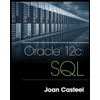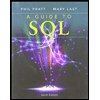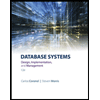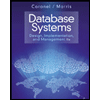Change to use the database frozenfood Alter table customerOrder add column total as data type decimal size 7,2, not null, default value of 0.0 Update table customerOrder, set column total equal to column quantity multiplied by subquery a. (select column price from table product where column productId in table customerOrder equals column id in table product) Update table customerOrder, set column orderStateld equal to subquery a. (select column id from table orderstate where state equals “Payment received") Alter table customerPayment add column paymentDate as data type date, not null, default value of (CURRENT_DATE) (Note: the parenthesis MUST be included)
SQL
SQL stands for Structured Query Language, is a form of communication that uses queries structured in a specific format to store, manage & retrieve data from a relational database.
Queries
A query is a type of computer programming language that is used to retrieve data from a database. Databases are useful in a variety of ways. They enable the retrieval of records or parts of records, as well as the performance of various calculations prior to displaying the results. A search query is one type of query that many people perform several times per day. A search query is executed every time you use a search engine to find something. When you press the Enter key, the keywords are sent to the search engine, where they are processed by an algorithm that retrieves related results from the search index. Your query's results are displayed on a search engine results page, or SER.


Trending now
This is a popular solution!
Step by step
Solved in 2 steps







